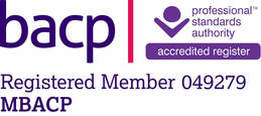How might therapy help?
If we could harness suffering, it would make a powerful engine. We all suffer – we wish that we did not, but it seems to be part of the human condition.
So where does a talking therapy come in? None of us, sadly, can make it all better, as our mothers may have said to us when we were small. We cannot rewrite history. But what we can do is make friends with our difficulties. We can start to look at them differently; to regard our past failures with compassion rather than remorse. We can turn our vulnerabilities into insights.
The consulting room can provide just the right amount of freedom to talk about the things that trouble us most, perhaps for the first time in our lives.
Eventually, instead of being ambushed by our distress, we learn to accept it. And instead of being stuck in the same old rut, we start to become more adventurous; we experiment with new perspectives, review old patterns of relating and begin to explore our potential.
So where does a talking therapy come in? None of us, sadly, can make it all better, as our mothers may have said to us when we were small. We cannot rewrite history. But what we can do is make friends with our difficulties. We can start to look at them differently; to regard our past failures with compassion rather than remorse. We can turn our vulnerabilities into insights.
The consulting room can provide just the right amount of freedom to talk about the things that trouble us most, perhaps for the first time in our lives.
Eventually, instead of being ambushed by our distress, we learn to accept it. And instead of being stuck in the same old rut, we start to become more adventurous; we experiment with new perspectives, review old patterns of relating and begin to explore our potential.
What is my approach?
My approach is psychodynamic and analytical. As well as being interested in everyday troubles and triumphs, I also pay attention to unconscious processes - the hidden parts of ourselves that emerge in dreams and fantasies, as well as in our stories about ourselves and what we do.
I consider that past experiences, particularly early childhood experiences, play an important role in shaping our current thoughts and feelings. These early influences are especially important in the repeated patterns we see in our relationships - including our own relationship in the consulting room.
I consider that past experiences, particularly early childhood experiences, play an important role in shaping our current thoughts and feelings. These early influences are especially important in the repeated patterns we see in our relationships - including our own relationship in the consulting room.
Long and short-term work
I offer long and short-term psychotherapy, depending on what you need. Some people stay in therapy for one to two years, sometimes for longer, and often people come more than once a week.
I can also offer brief, more focused counselling sessions for people who feel they may require some therapy, but do not want a full-scale analytical approach.
I can also offer brief, more focused counselling sessions for people who feel they may require some therapy, but do not want a full-scale analytical approach.
Iona Brown Analytical Psychotherapy & COUNSELLING
MA (Oxon), BA (Eng Lang & Lit), BSc (Psychol), Prof Cert Mgt (Open), Cert Couns (Salford), Adv Dip Couns (Wigan), Cert Systemic Family Therapy (Parkview), Cert Group Analysis (Turvey), Cert Action Methods (West Mids Psychodrama Group), MBACP (accred). Member of West Midlands Institute of Psychotherapy. Copyright 2024
|
|

